Turkey vs Dubai: Where to move to permanently?
Have you long dreamt of moving to the warm sea? Now is the perfect time to act! The main question that arises in such cases is — where to go?
Where to settle down so that life is comfortable, safe, and the climate is suitable?
We will compare the most popular destinations among citizens of the post-Soviet space: Turkey and the Emirates, and even more specifically — southern Turkey (in particular, Antalya) and Dubai.
For comparison, we will consider all the most important aspects of life: from real estate prices to the possibility of obtaining citizenship and residence permit. We will not ignore the quality of infrastructure, the affordability of prices for everyday needs, and attitudes towards foreigners.
So, let's get started. In this part of our overview, we'll talk about general aspects of life, and in the others, about specific ones, including the price per square meter of housing and the costs of maintaining it.
Climatic features of southern Turkey and Dubai
Let's start with the climate: if it turns out to be unsuitable for you and your family, you can forget about moving.
In the south of Turkey, the climate is Mediterranean, with a hot summer up to +35°C and a rainy winter, when the temperature drops to +5...+15°C. Dubai is much hotter: in the summer, the thermometer easily exceeds +45°C, in the winter — +20°C.
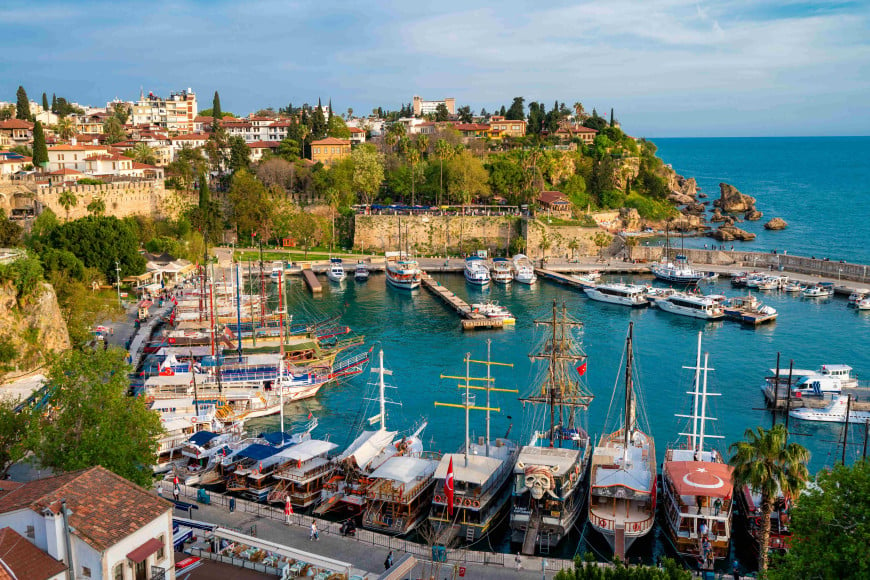
Even if you relatively well tolerate hot weather, keep in mind that in Dubai it is complemented by extremely dry air and incredibly high solar activity, you should forget about leaving the house without sunscreen even in winter.
Sand storms are frequent, after which the metropolis takes some time to recover: sand blown in from the desert is removed from the streets, from parks, so that it is comfortable to move around the city.
The sea and beaches in Turkey and Dubai: how they differ
The beaches in Dubai are sandy, clean, and extensive. There are free sections that are quite comfortable, with changing cabins, sun umbrellas, sunbeds, and paid beaches belonging to hotels.
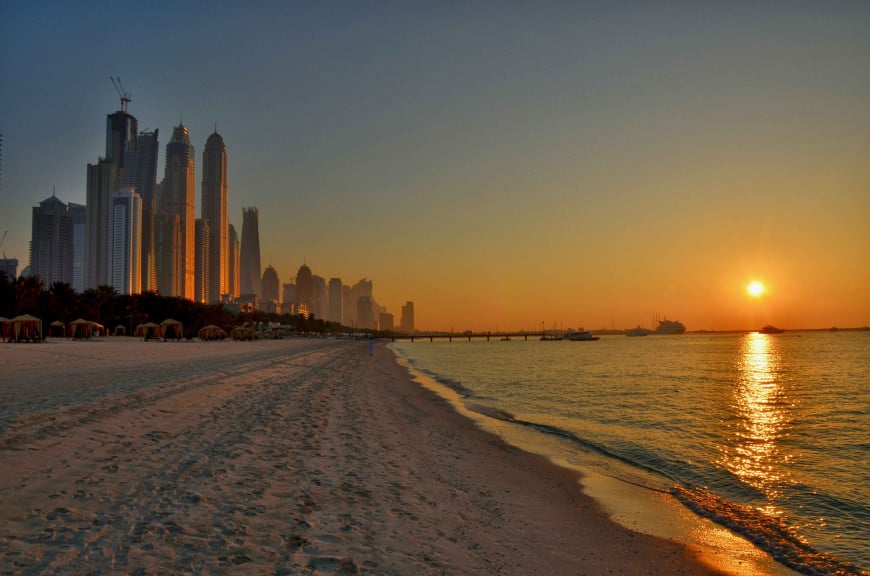
The water in the Persian Gulf warms up to +26°C by April, and in August its temperature is +33°C. Even in December, the sea is warm, around +24°C, so the beaches do not become deserted until winter itself.
For entertainment, beach visitors have access to kitesurfing and windsurfing, kayaking, wakeboarding, water skiing, deep-sea fishing, as well as night parties. Pay attention, it's forbidden to bring anything of your own to beach discos, even water. Some beaches have children's playgrounds, skate parks, beach volleyball courts.
In Dubai, there are several beaches, for example, Al-Mamzar, which on certain days of the week work only for local women: on such days, men are not allowed there, nor are children over the age of 8, so emirate women can relax peacefully, not fear prying eyes.
Generally, when visiting beaches in Dubai, it's important to pay attention to information signs: in some places, it's prohibited to take photos, practically nowhere is it acceptable to wear too revealing bikinis, sunbathe topless, or to smoke. Men can only be on the beach in shorts. Violation of these rules may result in fines.
Turkey offers beaches for every taste: private and public, sandy and pebbly, wild and excellently equipped. Almost all resorts are located along the Aegean and Mediterranean coasts.
The best beaches along the Aegean coast are considered to be Icmeler and KumluBuk, and on the Mediterranean Sea - Oludeniz, Cleopatra Beach and Cirali. However, when we say "the best", it does not mean that other holiday spots are worse, it just means these are the most popular beaches with the most convenient location that have featured in all travel guides.
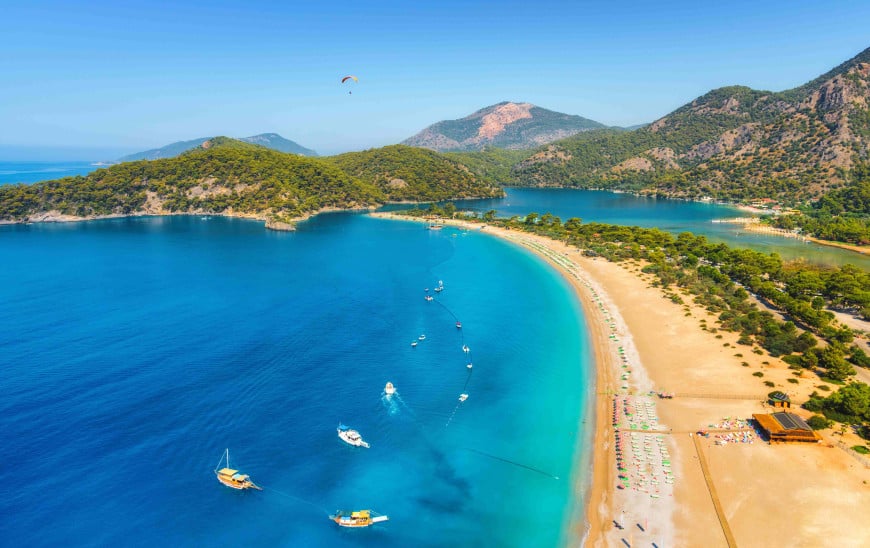
Choosing a location for beach holiday in Turkey shouldn’t pose any problems. The key deciding factor is really just about what you prefer - solitude with fewer tourists or full-service infrastructure with seaside cafés, fish restaurants, water entertainment and attractions. There is definitely a beach available to suit any requirement.
Entertainment, sights and leisure
Dubai is deservedly called a wonder of the world – a city built in the middle of an endless desert, amazes with its grandeur, luxury and shine.
Skyscrapers, the most expensive yachts, firework shows and fountains – Dubai offers many things to see.
The truth is, beyond the Emirate all you will find is sands stretching to the horizon, though even in the desert, there are forms of entertainment such as camel rides, quad biking and getting acquainted with Bedouins.
Otherwise, life in Dubai is actively centred in the malls - huge shopping and entertainment centres where you can spend entire days marveling at new achievements of the human intellect.
Entertainment in Dubai is expensive, and even if you can afford crazy spending during your holiday (we only live once!), after moving permanently, you probably wouldn't want to spend a fortune on skiing or fishing from a yacht in the Persian Gulf.
In Turkey, the landscapes are much more diverse: wherever you go, there will be lush greenery everywhere – pine, eucalyptus and cedar groves, tangerine and olive trees, well-kept gardens and parks.
Mountains, seas (there are four around Turkey), amazing natural wonders like canyons with waterfalls or the stone "mushrooms" of Cappadocia...

In short, you can explore Turkey for years by simply choosing a new place to visit from time to time. The unique, ancient history of these places is carefully preserved by the state — ongoing excavations constantly enrich the rich collections of numerous museums.
How are foreigners treated in Turkey and Dubai?
Now, on to the attitude towards foreigners, which you will encounter on the first days of your stay in a new country.
We should not confuse tourism with immigration: we will speak about the true attitude of the locals towards those who are moving permanently, not those who come for a week or two to bask in the sun. Tourists are greeted warmly and joyfully everywhere.
In Dubai, you will never be considered one of the locals, despite how expensive a place you may have purchased, how much money you have invested in a business or how many years you have lived in the Emirates.
Arabs' certain condescending attitude towards foreigners will be noticeable and the state will make every effort to demonstrate that you and your family are "second-class" people who are tolerated here only while they have money.
This indifferent attitude towards non-citizens is instilled from childhood: a child might find that their classmates refuse to play with them simply because they are not "emiratis".
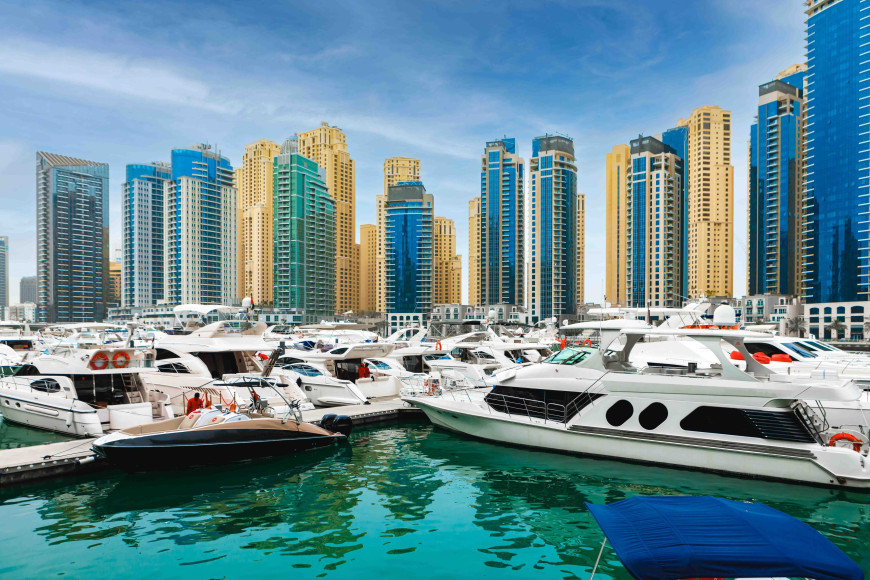
The authorities, of course, try to make it so that it is not very noticeable, but the country's laws speak for themselves: all state support is exclusively aimed at helping citizens, but they make up only 10-15% of Dubai's population. The rest of the population is mainly Indians and Pakistanis.
It is much easier to assimilate in Turkey, especially if you make efforts to do so: start learning the language, adhere to local traditions, and respect Turkish culture.
Yes, Turks do blame foreigners to some extent for the rise in prices, as a sharp influx of foreigners has drastically increased the cost of rent and food.
But externally, their displeasure does not manifest, you can still count on a friendly attitude and help in everyday matters.
What about religiosity and behavioural norms?
Since we've started talking about the locals' attitude, it's important to cover another aspect of life in Muslim countries - behavioural norms and religiosity. Here too, there are significant differences.
Turkey is a secular country, although almost 90% of its population identify as Muslims, only about 20% strictly observe religious norms.
Yes, there are religious studies in schools - 1-2 hours a week, but not all students attend them. Women are advised to enter mosques with their heads covered, and religious holidays are declared national days off. The youth mostly try to stick to European style in clothing, no one is surprised by shorts and a short top in tourist areas.
In Dubai, adhering to religious norms is much stricter, which is not surprising for the Emirates, as there are Sharia courts, which can be an unpleasant revelation for foreigners.
For instance, appearing in public while intoxicated can result in severe punishment in the form of a fine (at best) or a lash of a whip. The same applies to drunk driving, marital infidelity, and even excessive public displays of affection. There have been cases when foreigners were sentenced to death for breaking the country's laws.
A little about alcohol. In Turkey, you can freely buy it in bars, restaurants, supermarkets, and specialised stores.
Locals mainly drink beer, not strong drinks, you definitely won't come across a drunken Turk on the streets - this is considered impolite, although not punished in any way.
In Dubai, alcohol rules are strict: it is sold only in places with a special license, drinking in a public place is strictly prohibited, as well as just on the streets. The punishment for foreigners is a fine and deportation.
How much does food cost in Turkey and Dubai?
Another important question that everyone is worried about is the price of food, expenses for cafes and restaurants, that is, those expenses that are impossible to avoid. Let's compare.
Let's start with Dubai. Food there is expensive - in local conditions it is quite difficult to grow vegetables and fruits, as well as breed cattle, so almost everything on the shelves of stores is imported.
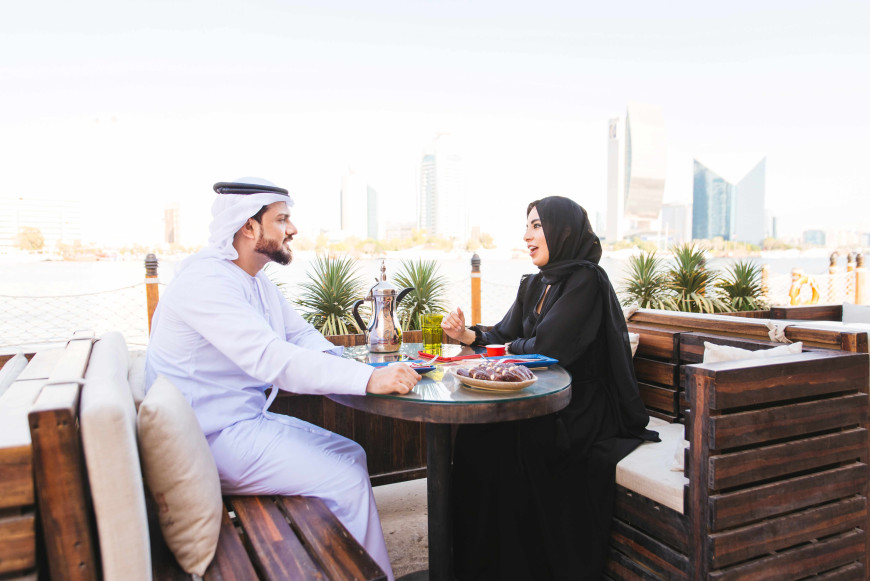
You definitely won't feel the lack of supermarkets in Dubai, they're everywhere, or rather, at every stop, because no one dares to walk on the hot asphalt under the scorching sun.
The array of products in stores will impress you with its diversity, you can occasionally even find pork there. There is no free sale of alcohol, as we have already mentioned.
And here are some current prices (as of May 2023) so that you can approximately imagine the level of family food expenses.
Bread - from 1 dollar per loaf.
Three dozens of eggs - from 4 dollars.
A kilogram of hard cheese - from 14 dollars.
A kilogram of beef - from 8 dollars.
A kilogram of chicken - from 6 dollars.
A kilogram of potatoes or onions costs from $1.
A kilogram of tomatoes costs from $1.5.
A litre of milk costs from $1.5.
A kilogram of apples goes for around $2.5.
The product prices largely depend on the type of shop (there are both premium and relatively affordable supermarkets in Dubai), and this similarly applies to prices in cafes and restaurants.
A shawarma at a street kiosk usually costs $1.5–3, pizza in an inexpensive cafe costs about $15, and a combo meal at McDonald's will set you back $7. If you are looking to dine in a posh restaurant, prepare to spend at least $80.
Even a small takeaway cappuccino from the nearest coffee shop takes $7 from your pocket. On average, consumer prices in Dubai are 82.6% higher than in Antalya.
So, what about food prices in Turkey?
First of all, Turkey is a country with a very developed agriculture sector, enabling its inhabitants to consume fresh vegetables and fruits all year round for a very low price.
Of course, their prices are not constant and decrease significantly during the seasonal period, increasing in the other months. Nevertheless, the prices of mandarins, watermelons, peaches, olives, and nuts are substantially lower than in Europe.
If you need to save money, head to the farmer's market that operates once a week, with schedules varying for each city or large town district.
Current prices in Turkish stores as of May 2023:
Bread - from $0.3 per loaf.
Three dozen eggs - from $3.5.
A kilogram of hard cheese - from $10.
A kilogram of beef - from $6.
A kilogram of chicken - from $2.5.
A kilogram of potatoes, onions - from $0.4.
A kilogram of tomatoes - from $0.5.
A litre of milk - from $1.
A kilogram of apples - from $0.5.
The price of a shawarma at a street kiosk starts from $1.2, whilst a pizza in a regular cafe (off the waterfront) costs from $4.
You can lunch on a combo meal at McDonald's for $5–6, and local beer costs between $4–7 per bottle in a cafe and $1.5 in a supermarket.
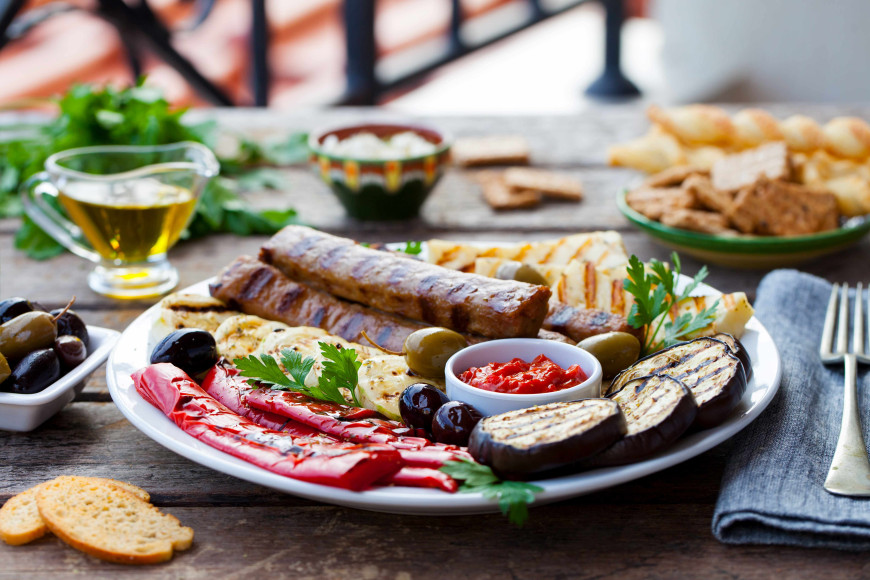
A dinner for two in a decent restaurant averages around $50, meaning that on the whole prices are 2, or in some places, 3 times lower than in Dubai.
Well, that's all we wanted to share about the differences between Turkey and Dubai in terms of general aspects of life; we hope you found it interesting.
In the next part of the review, we'll compare the transport infrastructure, the availability of education and healthcare, and then everything related to real estate.
Read the second part of our review “Turkey or Dubai #2. The challenges of moving to another country”
If you want to permanently relocate or buy property in Turkey and enjoy life by the sea, write to us on Whatsapp +90 (532) 158 42 44
You can also follow our YouTube channel and Instagram page to get information straight from the experts!
Another way of getting in touch with us: Telegram


